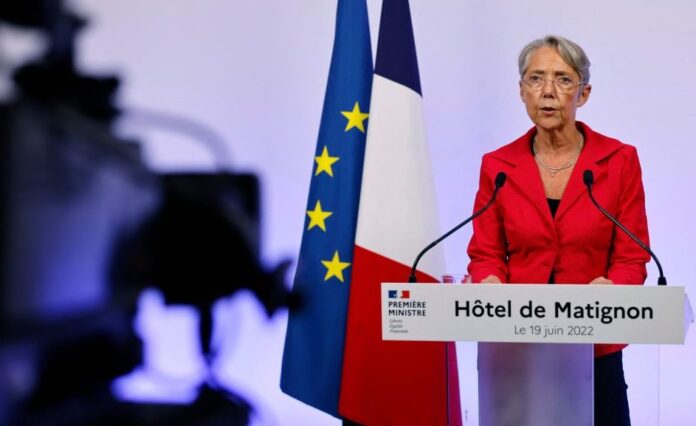LONDON: Experts fear an intensification of anti-Muslim rhetoric in France after substantive right-wing breakthroughs cut the government’s majority in the National Assembly at Sunday’s elections.
Despite a comfortable win in April’s presidential vote, Emmanuel Macron witnessed his governing centrist party Ensemble drop from 350 to 245 seats, well short of the 289 needed to form a majority, with major gains made by right- and left-wing parties.
Jean-Luc Melenchon’s left-green alliance may have picked up 131 seats, but it was the jump from seven to 89 of Marine Le Pen’s far-right National Rally that caught commentators off guard.
The right will be where Macron looks to forge a governing coalition, said Paul Smith, associate professor and section lead in French and Francophone studies, modern languages and cultures at the University of Nottingham.
“Macron needs 40-odd seats to get to that majority, and I think it’s likely that he won’t be looking for that support on the left,” he told Arab News.
“He was meeting party leaders to discuss their priorities, and the parties he’s closest to are UDI (Union of Democrats and Independents) and part of Les Republicains.
“Their election campaigns focused on the cost of living but were infused with identity politics — and a lack of concern in terms of allying with the far right.”
Emmanuel Godin, principal lecturer at the University of Portsmouth’s School of Area Studies, History, Politics and Literature, agreed with Smith, telling Arab News: “Macron is more likely to work with the right than the left.”
In playing to the right, Smith believes there will be a perpetuation of a style of politics that has dominated France in recent years with a normalization of anti-Muslim sentiment.
“Islamophobia dressed as secularism won’t be far from the surface,” he said. “We saw this recently with the backlash to the decision in Grenoble to allow the use of the burkini in public swimming pools.
“People should be allowed to go swimming as they like, but this rhetoric of ‘secularism’ overtakes the actual legislative action being taken, and blows everything completely out of proportion rather than speaking to reality.
“And that reality is that if secularism plays out properly, it gets strong support from Muslims as it means they can go about their lives unmolested.”
A poll conducted by the French Institute of Public Opinion supports Smith’s analysis, with 44 percent of Muslims favoring secularism, compared to 43 percent of those polled without a religion and 42 percent of Catholics.
Citing the survey, Godin described the reality of French Muslim opinion as “a far cry from the often caricatural representation of the issue in some media.”
In Sunday’s legislative elections, Muslim turnout was key to the success of left-wing candidates.
“Sixty-nine percent of Muslims voted for Melenchon in the first round of the presidential elections, and their main reasons were socioeconomic,” said Godin. “Socioeconomically speaking, a majority of French Muslims are working class.”
Asked if this means Macron has lost France’s Muslim community, Smith questioned whether the president had ever held its support.
He said part of the problem Macron faces when dealing with Islam and France’s Muslim population has been an inability to think of them as anything other than the historical remnant of French colonialism in North Africa. “I suspect Macron won’t pay attention to the wide support of Melenchon from Muslims,” Smith said.

